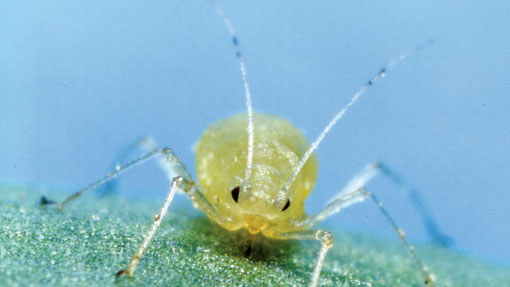Neonicotinoids ban makes pest control harder for OSR

As growers and agronomists look ahead to growing oilseed rape without crucial insecticide seed treatments, they are told that pest control will be far from easy. Adam Clarke reports
Multiple pyrethroid sprays to control flea beetles and reliance on just one product for aphid control will be the short-term solution for oilseed rape growers after the neonicotinoid seed treatment ban.
That was the message from entomologist and crop protection expert Alan Dewar, who described the ban as “a scandal” and not based on scientific fact.
The European Union ban on the active ingredients included in products such as Cruiser and Modesto came into force in December 2013 due to their perceived threat to bee health.
These products are the most effective way of protecting oilseed rape crops against flea beetles and turnip yellows virus carrying peach potato aphids in the autumn.
“Because they are so important, we shouldn’t be chucking them away lightly, but it seems that’s exactly what we are doing. But we have to live with it, so what are we going to do?” Dr Dewar said.
There are three types of flea beetle – the most common cabbage stem flea beetle, the predominantly southern-dwelling Wessex flea beetle and the less common turnip flea beetle.
The beetles feed on oilseed rape cotyledons and early true leaves – characterised by “shot-holing” – and lay eggs in the soil before they hatch and larvae climb up the stem and feed in the leaf petioles.
Increased insecticides
Dr Dewar has seen crops without a neonicotinoid seed dressing completely “hammered” by the pest, leaving surviving damaged plants much more susceptible to disease and pigeon attack.
Speaking at the Association of Independent Crop Consultants (AICC) annual conference, he went on to explain that currently there are no alternative seed treatments.
That is likely to lead to a sharp rise in foliar applied pyrethroid insecticides to protect crops until they reach a stage where beetle damage will not result in economic losses.
More on the plan now neonicotinoids are banned
Pyrethroid resistance is already present in German flea beetle populations and anecdotal evidence of resistance has been reported in Cambridgeshire.
New treatments in the pipeline
Work is ongoing to assess the potential of a pyrethroid-based seed treatment for flea beetle control in oilseed rape in the absence of neonicotinoids.
Signal from agrichemical girm Chemtura – an approved seed treatment in wheat and barley, containing cypermethrin for controlling pests such as wheat bulb fly – could have the potential to give oilseed rape crops a short period of protection post-sowing.
The company’s regional technical manager for Europe Steve Parker said that as it is a contact insecticide, it wouldn’t be as effective as the systemic neonicotinoids, but re-formulation could improve its efficacy.
“ADAS trials have shown that it gives some protection to early flea beetle damage in oilseed rape crops,” said Dr Parker.
He believes it could delay the need for an early foliar spray to protect the crop, but the difficulty will be bringing it to market quickly. “It’s a huge process and comes with a large cost, so we need to be convinced of its benefit and need to be sure of a return on our investment,” added Dr Parker.
It is feared the efficacy of pyrethroids such as cypermethrin and lambda-cyhalothrin could plummet rapidly as a result of the increased use.
“I would advise growers and agronomists to use traps to monitor flea beetle populations and only spray when it’s needed,” he said.
“Even so, growers are going to be applying two or three pyrethroid sprays to protect crops from flea beetles, so selection pressure will be very high,” added Dr Dewar.
Aphid exposure
The second significant pest that oilseed rape crops will not be protected against in the post-neonicotinoid era is the peach potato aphid, myzus persicae.
The pest carries turnip yellows virus, which can cause significant yield loss when infection occurs early in crop development and has not been a major problem prior to the ban in most seasons.
Dr Dewar said that with almost 100% of peach potato aphids now resistant to pyrethroids and pirimicarb (Aphox), there is only one registered option available. Trials carried out with the Syngenta product Plenum (pymetrozine) initially showed that it wasn’t very effective for myzus persicae control.
However, after mixing it with mineral oil, efficacy was greatly improved and although a more expensive option, it is the only insecticide that can provide adequate kill.
“It certainly won’t be used as an insurance spray as it is several times the price of pyrethroids and it can only be used once in the season,” added Dr Dewar.

